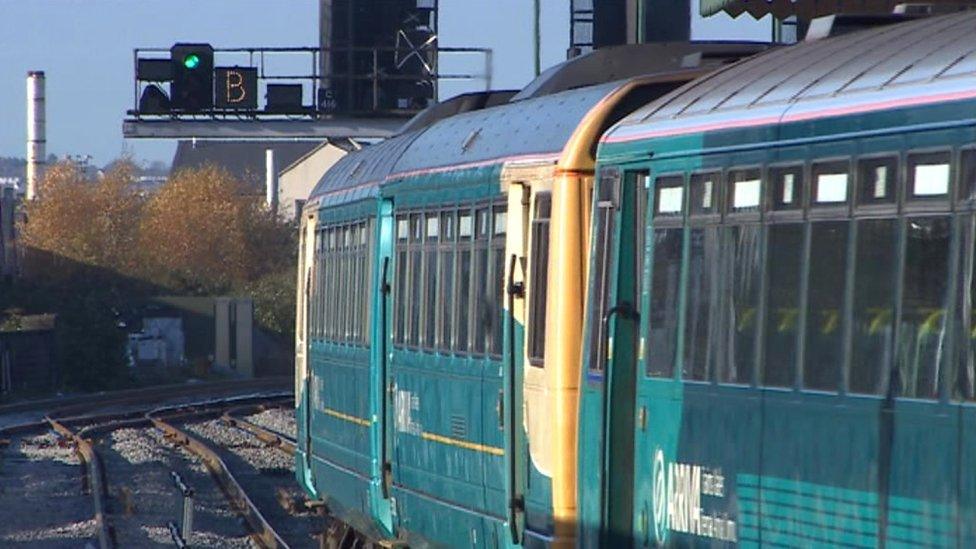New £5bn Transport for Wales rail franchise begins
- Published
A '15 year journey' to transform Welsh railway
The new operators of Wales and Borders rail services have taken over the running of the franchise.
French-Spanish joint venture KeolisAmey promises to eventually replace all trains, at a cost of £800m.
There is also £738m to electrify the South Wales valleys lines, add more services and launch the new South Wales Metro over the next 15 years.
It marks an end to the troubled tenure for Arriva Trains Wales, criticised for overcrowding on commuter services.
This is the first time the Welsh Government has had control over the £5bn franchise, which will be overseen by Transport for Wales (TfW), promising to transform rail travel over the next 15 years.
It comes as the public is taking more journeys by train, with passenger numbers forecast to continue rising.
KeolisAmey has been given targets on punctuality and overcrowding - with potential financial penalties - and faces a cap on its profits.
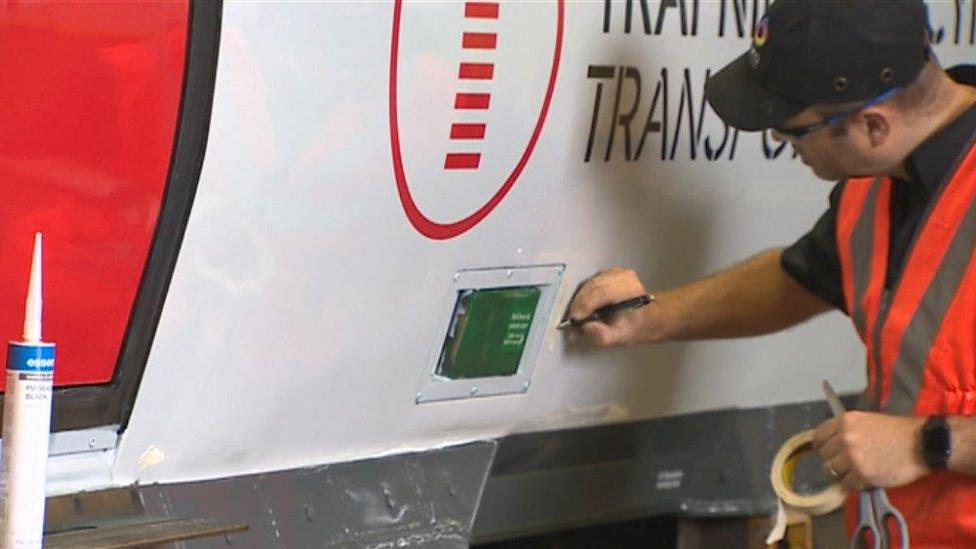
New branding on a train being applied at a workshop
But most of the biggest promised changes will not happen for at least a couple of years.
"From day one, we'll see changes come in quite gradually," said TfW chief executive James Price.
"We'll see branding beginning to change, staff uniforms will look different - and over the coming months you'll see new services introduced.
"Then the next 12 to 18 months, the beginnings of the new rolling stock will come into play."
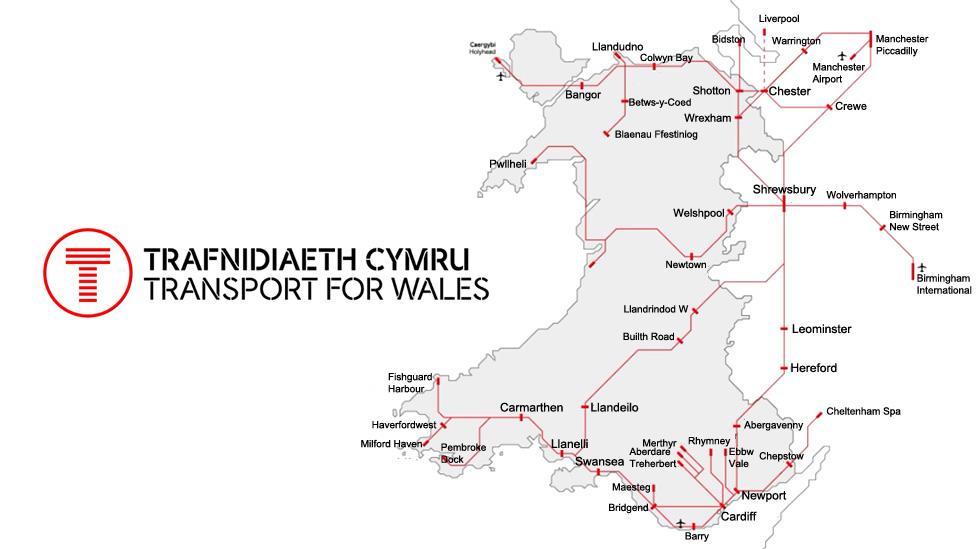
How the Wales and borders main rail network looks
What can you expect to see soon?
It will be a while before passengers feel the benefit of new trains - the first should appear in 2021 but with the promise that all will be replaced by 2023
The first extra Sunday services in north Wales and early weekday services in south Wales are due to begin in December
Transport for Wales' branding will be appearing on staff uniforms, at stations and on some trains, while a new website and app will be running for customers by Monday
All stations will also get a deep-clean, with the programme starting in December
How did we get here?
The change-over marks the end of German-owned Arriva Trains Wales (ATW) operating the franchise. It has been running services since 7 December 2003 - and pulled out of the bidding to continue to run it.
Previously, the Wales and Border service - bringing together 1,000 miles of railway - had been run by National Express Group. It it had bought Prism in 2000, which had run the Cardiff Railways and Wales and West services since 1996.
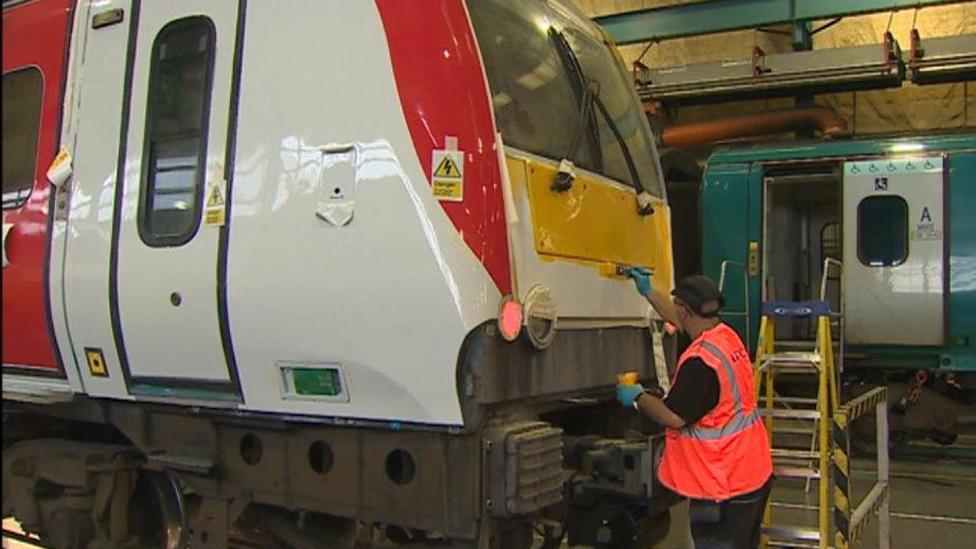
A train being painted with the Transport for Wales livery
ATW had promised a modest seven new diesel trains and the re-opening of the Vale of Glamorgan line between Cardiff, Barry and Bridgend when it took over.
But there was no provision in the deal - awarded by the Department of Transport - for putting on more trains in the event of rising passenger numbers. The company also faced declining UK government subsidy.
ATW has faced criticism for overcrowded trains, particularly on busy services from the south Wales Valleys into Cardiff, where the most recent survey found 65% of commuters were satisfied. , external

Analysis
Brian Meechan, BBC Wales business correspondent
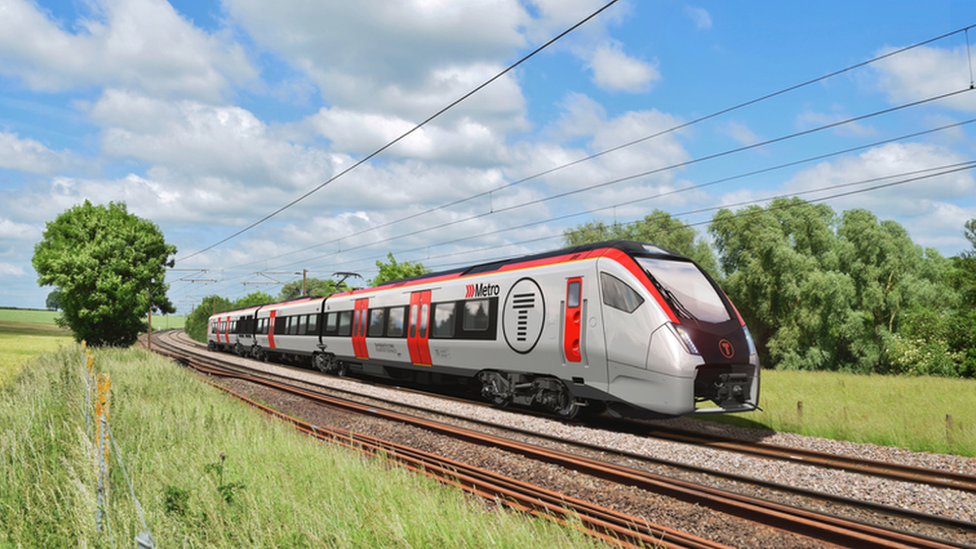
95% of journeys will be on new trains within five years, the operator says
Managing expectations is going to be the key for TfW and KeolisAmey.
Passengers have been frustrated at times with Arriva Trains Wales.
The company has struggled with a significant increase in demand for trains while it had a contract that assumed otherwise.
That said, it was also delivering a small profit to its shareholders while taking a huge public subsidy for a service many thought was below standard.
This is the first time the Welsh Government has been responsible for the rail contract. It has set up a new body to manage the system and brought in KeolisAmey, a company with a global reputation.
But the scale of what is being tried here should not be underestimated.
While rail services across Wales are having to be upgraded after years of underinvestment, at the same time a new South Wales Metro will have to be created.
People will begin to see changes in signage and trains from today but they will expect to see much more substantial changes before too long.

Transport expert Christian Wolmar said where rail services had been devolved - such as in Scotland, Merseyside and London - and local authorities or devolved government had a say, there had been improvements.
"Undoubtedly the same thing should happen in Wales," he added.
Economy and Transport Secretary Ken Skates said they had agreed an ambitious contract which was a "big step up".
"Things won't change rapidly overnight but people will begin to see improved services from the outset while we await the delivery of new rolling stock," he said.
- Published10 October 2019
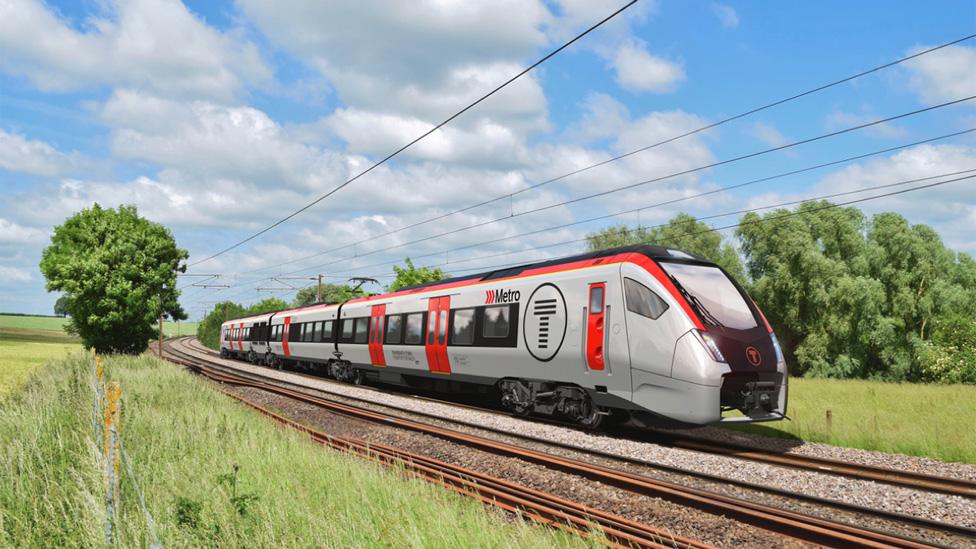
- Published4 June 2018
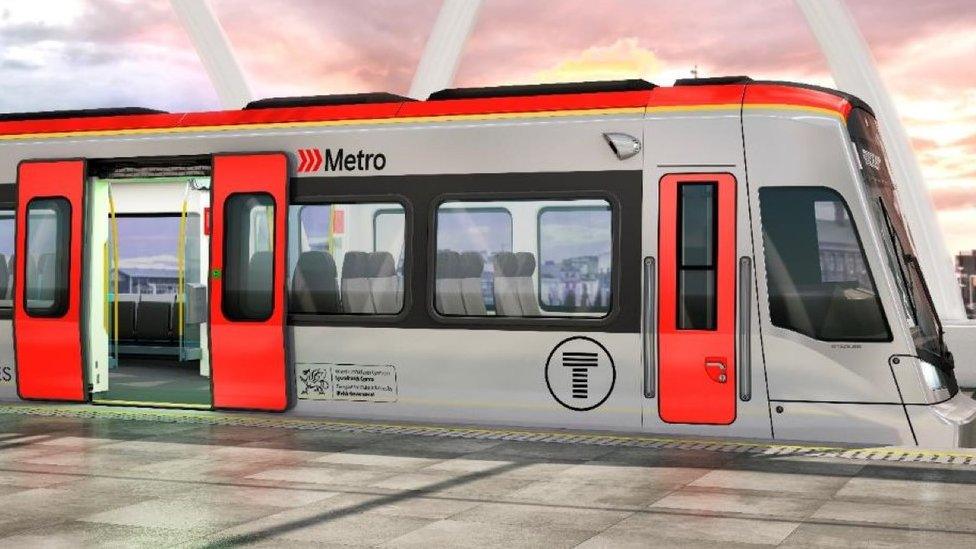
- Published23 May 2018
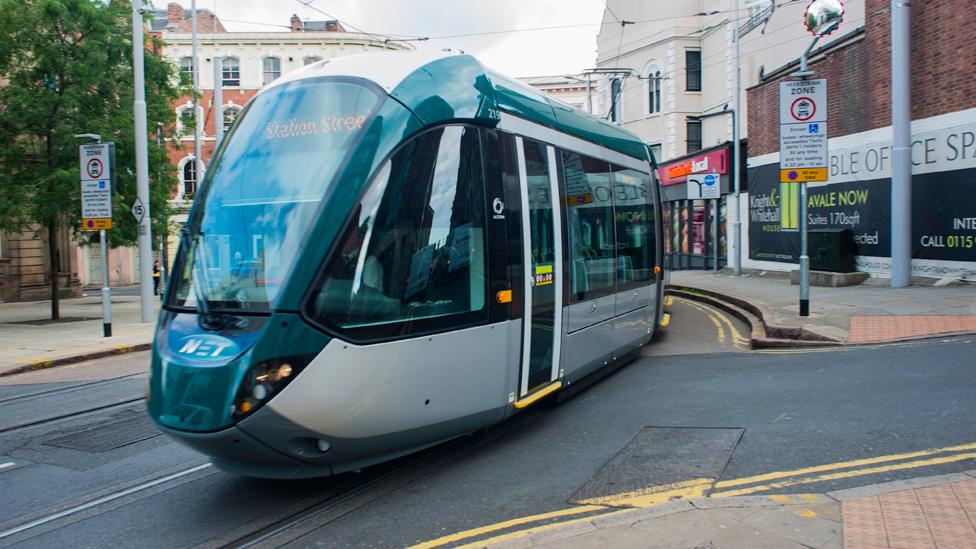
- Published14 May 2018
